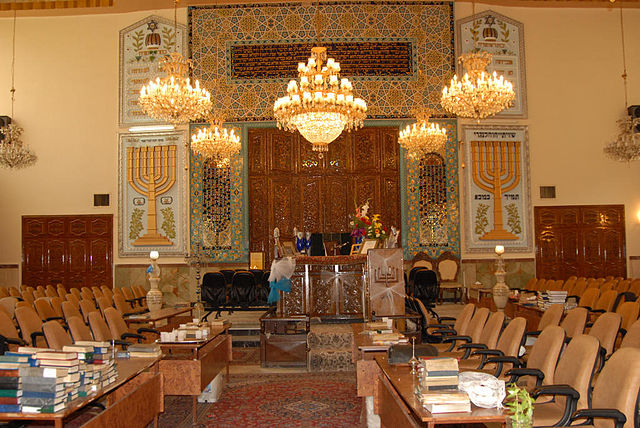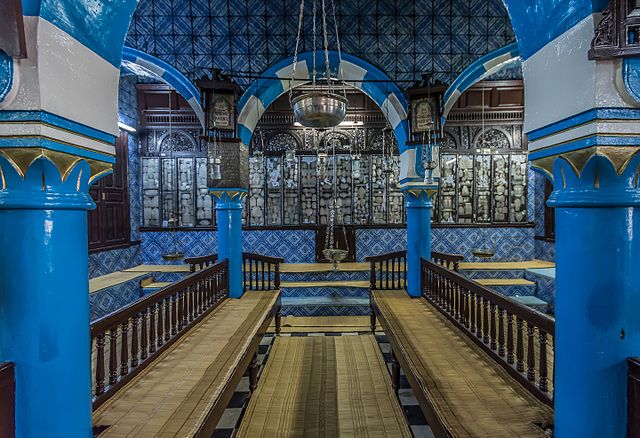Susya is a location in the southern Hebron Governorate in the West Bank. It houses an archaeological site with extensive remains from the Second Temple and Byzantine periods, including the ruins of an archeologically notable synagogue, repurposed as a mosque after the Muslim conquest of Palestine in the 7th century. A Palestinian village named Susya was established near the site in the 1830s. The village lands extended over 300 hectares under multiple private Palestinian ownership, and the Palestinians on the site are said to exemplify a southern Hebron cave-dwelling culture present in the area since the early 19th century whose transhumant practices involved seasonal dwellings in the area's caves and ruins of Susya.
View of Susya
Susya synagogue mosaic with Hebrew inscription
Rolling stone at the entrance of the Susya synagogue
Susya synagogue
A synagogue, also called a shul or a temple, is a place of worship for Jews and Samaritans. It has a place for prayer where Jews attend religious services or special ceremonies such as weddings, bar and bat mitzvahs, choir performances, and children's plays. They also have rooms for study, social halls, administrative and charitable offices, classrooms for religious and Hebrew studies, and many places to sit and congregate. They often display commemorative, historic, or modern artwork alongside items of Jewish historical significance or history about the synagogue itself.
Eldridge Street Synagogue in New York City, U.S.
Princes Road Synagogue in Liverpool, England
Yusef Abad Synagogue in Tehran, Iran
El Ghriba Synagogue in Djerba, Tunisia








